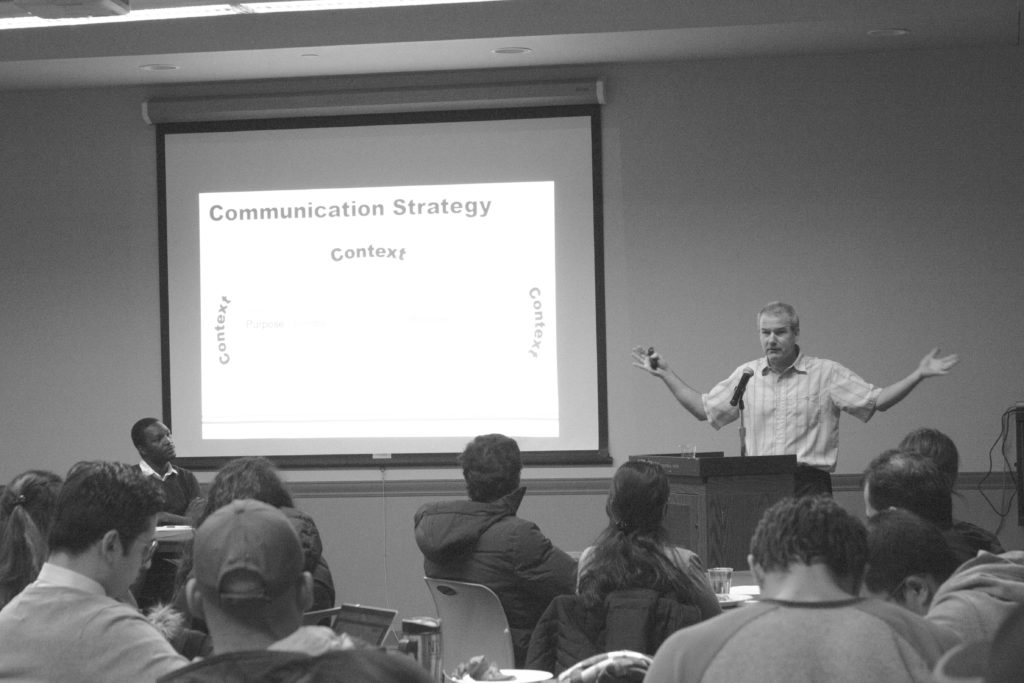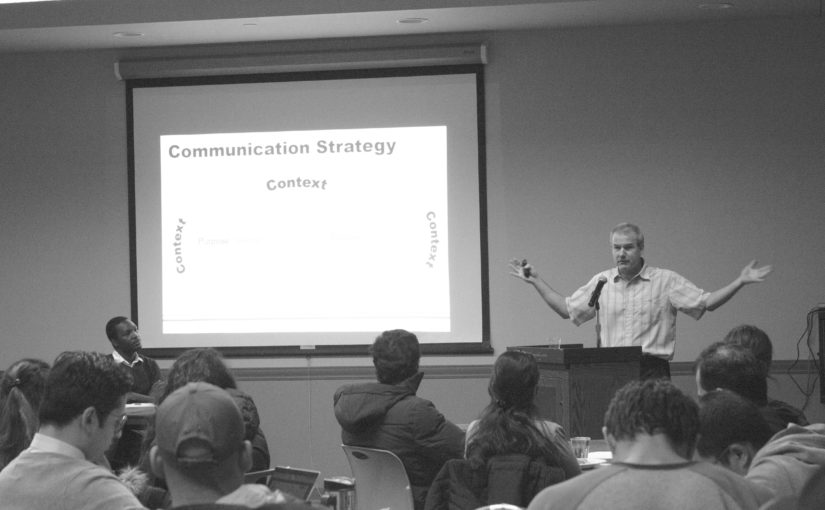
Enrico Sassi spoke on the importance of using resources around campus to apply for grants.
The Graduate Student Council teaches students how to continue to excel in graduate school. It provides events with speakers about topics that are difficult to understand, so students can listen and ask questions that are usually not answered.
The monthly meeting took place Nov. 14 and focused on fellowships, scholarships and what resources can be used when applying for these grants. Four speakers, Enrico Sassi, director of Center for Writers, Scarlet Gray Bernard, grant writing consultant, Marvin Ssemadaali, ND EPSCoR Fellowship Awardee, and Ashleigh Petts, NDSU Doctoral Dissertation Fellowship Awardee, talked about what they know about grants and how to utilize their knowledge.
When looking for a grant, talking with an adviser can help you decide where to start. Grant searching is a difficult task, so using your resources is vital, but making sure to research beforehand can help the adviser know what exactly you are looking for and can help you figure out what questions you need answered. “Don’t ask stupid questions. Do all the research that you can and then come up with questions,” Sassi said.
The North Dakota State Graduate School website has many resources for students to use to learn more about databases for grants, such as Pivot and Foundation Center. Gray Bernard focused on the Pivot database because it has a customized search function that is easy to navigate and keep track of the available grants.
Ssemadaali spoke about the importance of talking to your adviser, friends and professors in the department. He said these people are the ones who will know what grants fit your research. Getting some support from these people can affect the outcome of the grant. For example, Petts needed two recommendations from her adviser and the director of graduate studies in her department.
Gray Bernard focused on what happens after the dissertation and what awards to apply for after it is submitted. She said that this is a timely commitment. “Some grants, especially federal ones, take nine months to a year to take make a release on proposal,” Gray Bernard said.
She talked about the steps of what to do after you find a grant that is good for you. According to Gray Bernard, looking at eligibility is one of the most important parts of applying for grants, to see if you are even eligible before applying. She then said the due date is second. “Is this due date a match for my timeline?” Gray Bernard questioned. “Does this fit for my timeline for graduation?”
When considering applying for a grant, giving yourself more time to allow yourself to ask questions throughout the process and not feel rushed is important. Petts explained how she started the summer before her fellowship application was due and said starting at least three months before is a good idea to give yourself plenty of time to complete the application adequately.
Looking at who is funding the grant is also important because normally they have a reason for offering the grant. Sassi explained how students should research the agencies that are providing grants because “all the people who give you money have some reason for doing it.” Researching who is offering a grant allows students to see whether their mission for the grant fits into their research field.
Once you finally find a grant worth applying for that fits your research, writing it is vital to being awarded the money. Sassi talked about the mindset one should be in when writing grants. “Writing grants is just like any form of communication,” Sassi said; there is the writer and the receiver of the grant.
When writing, the panelists spoke about putting yourself in the reviewer’s mind. They said doing this while writing the research report is important because it helps explain it from an outside perspective, therefore you go into more detail and leave out difficult terminology that others may not understand.
